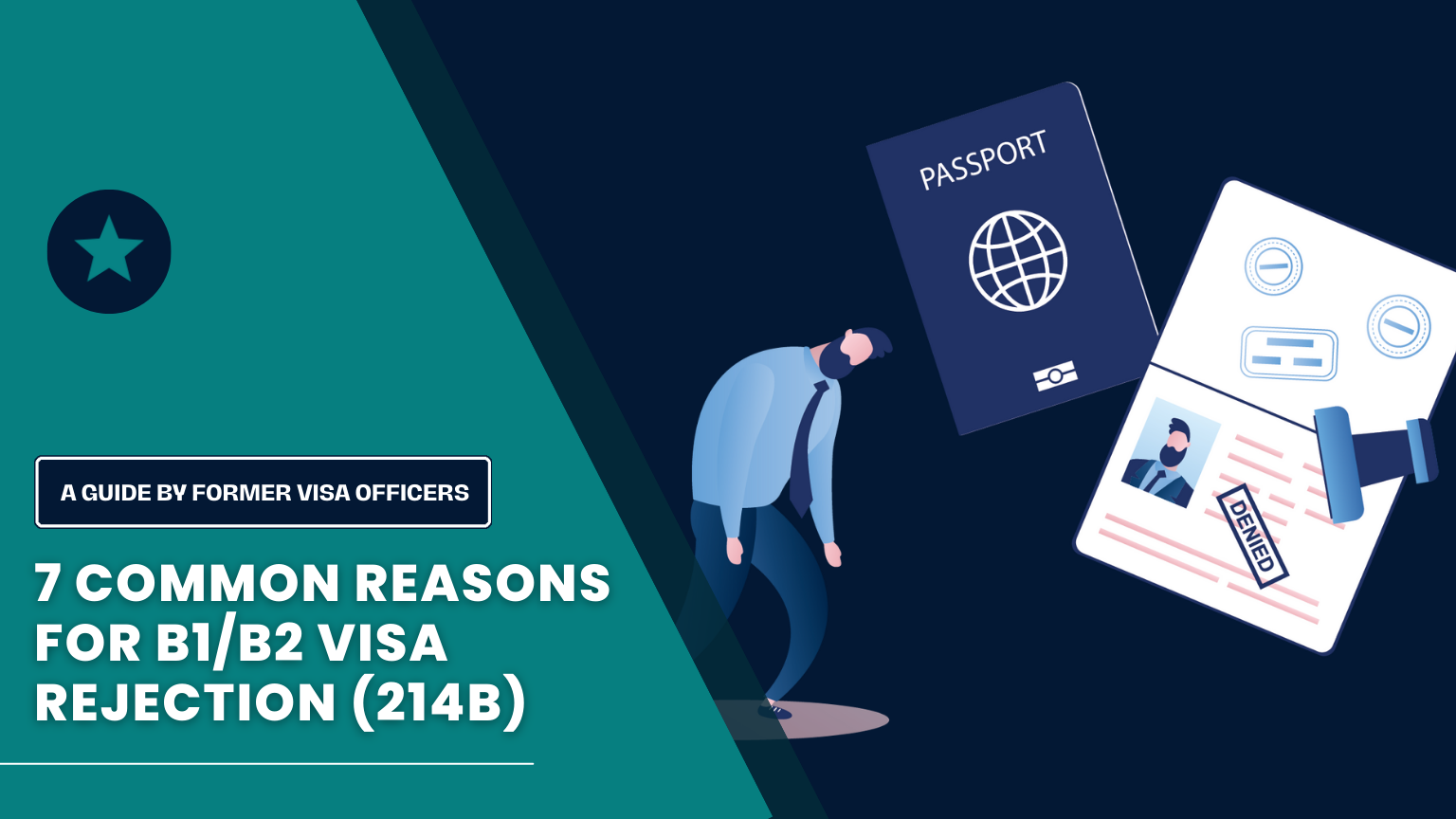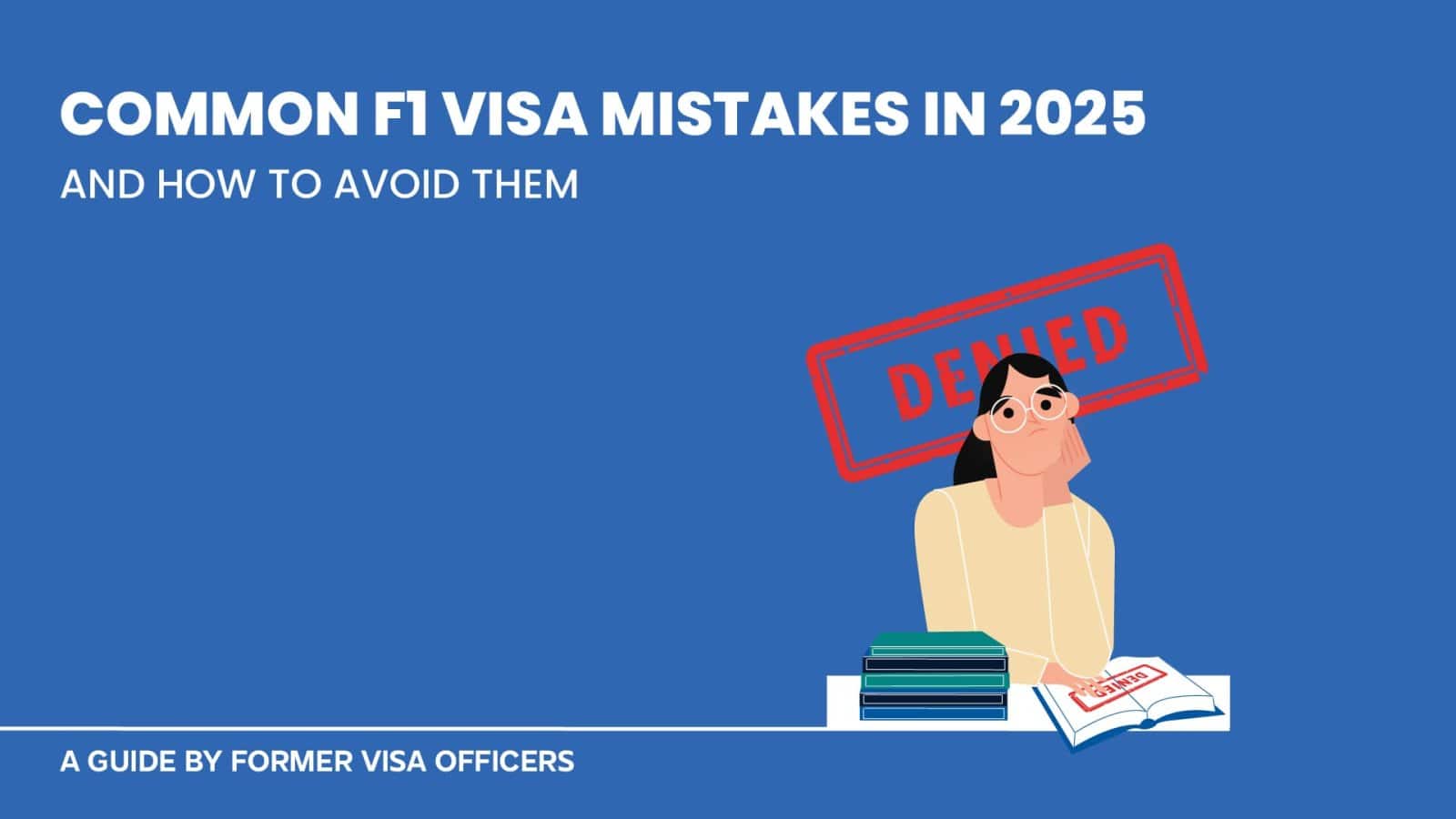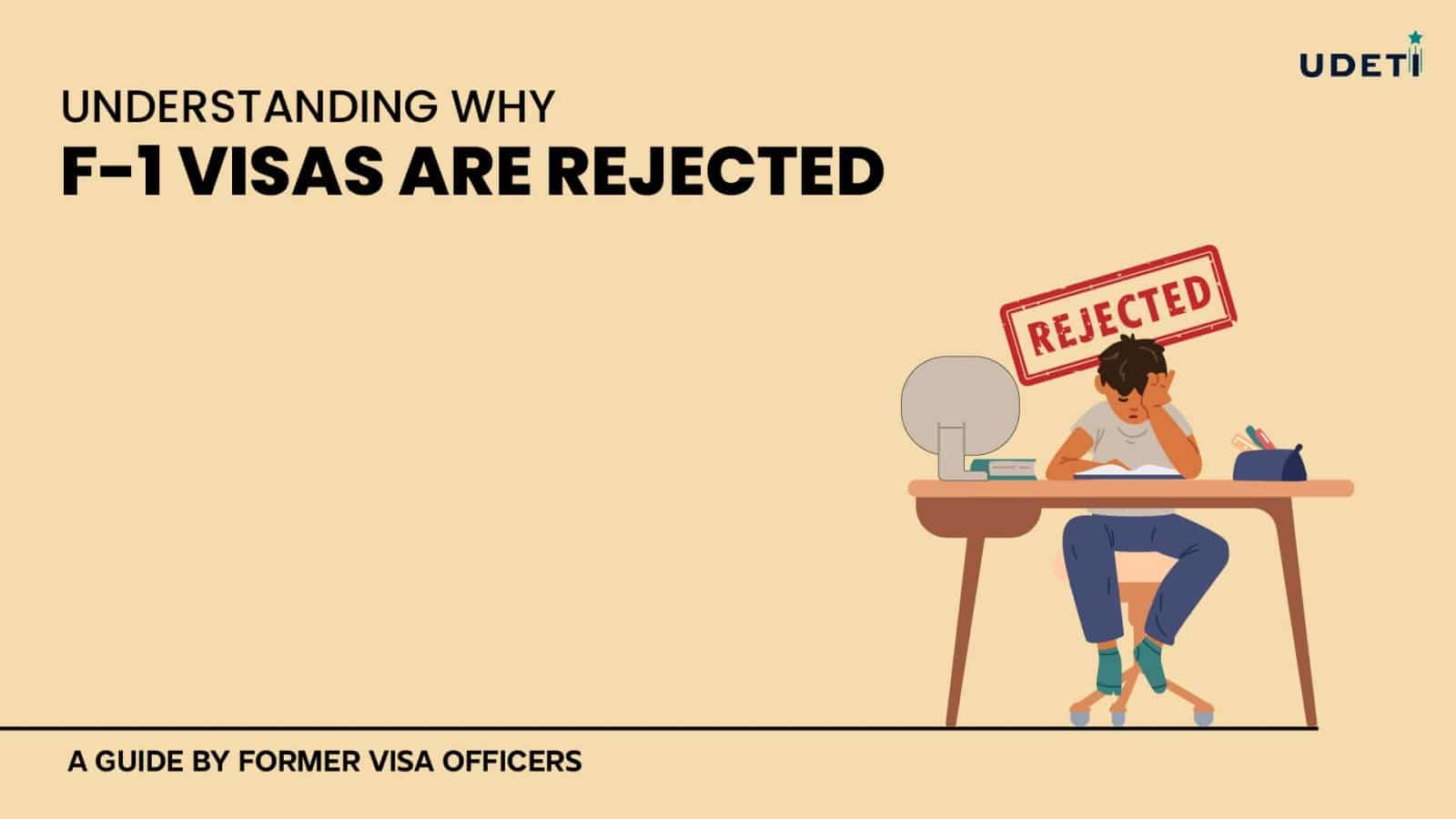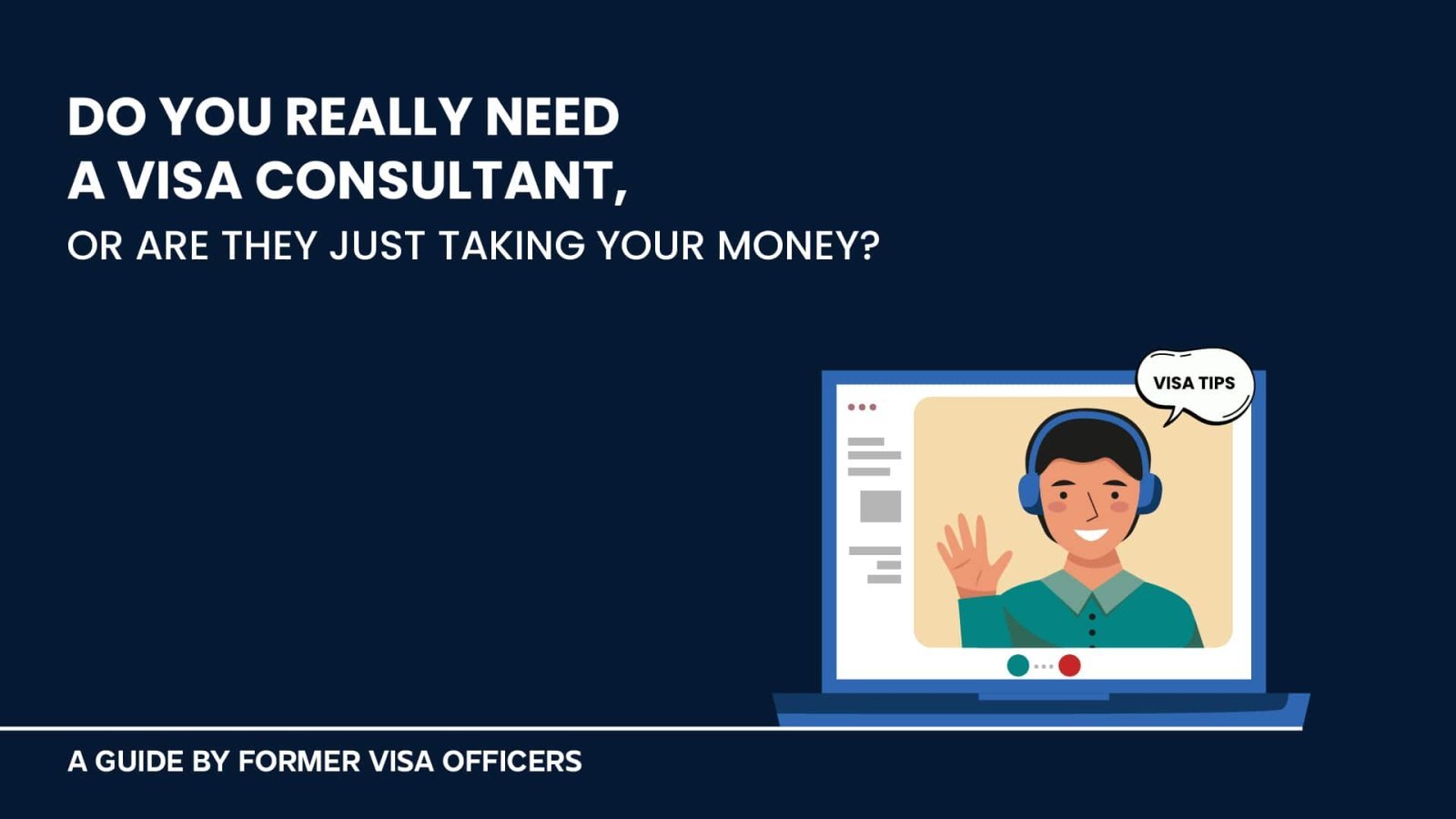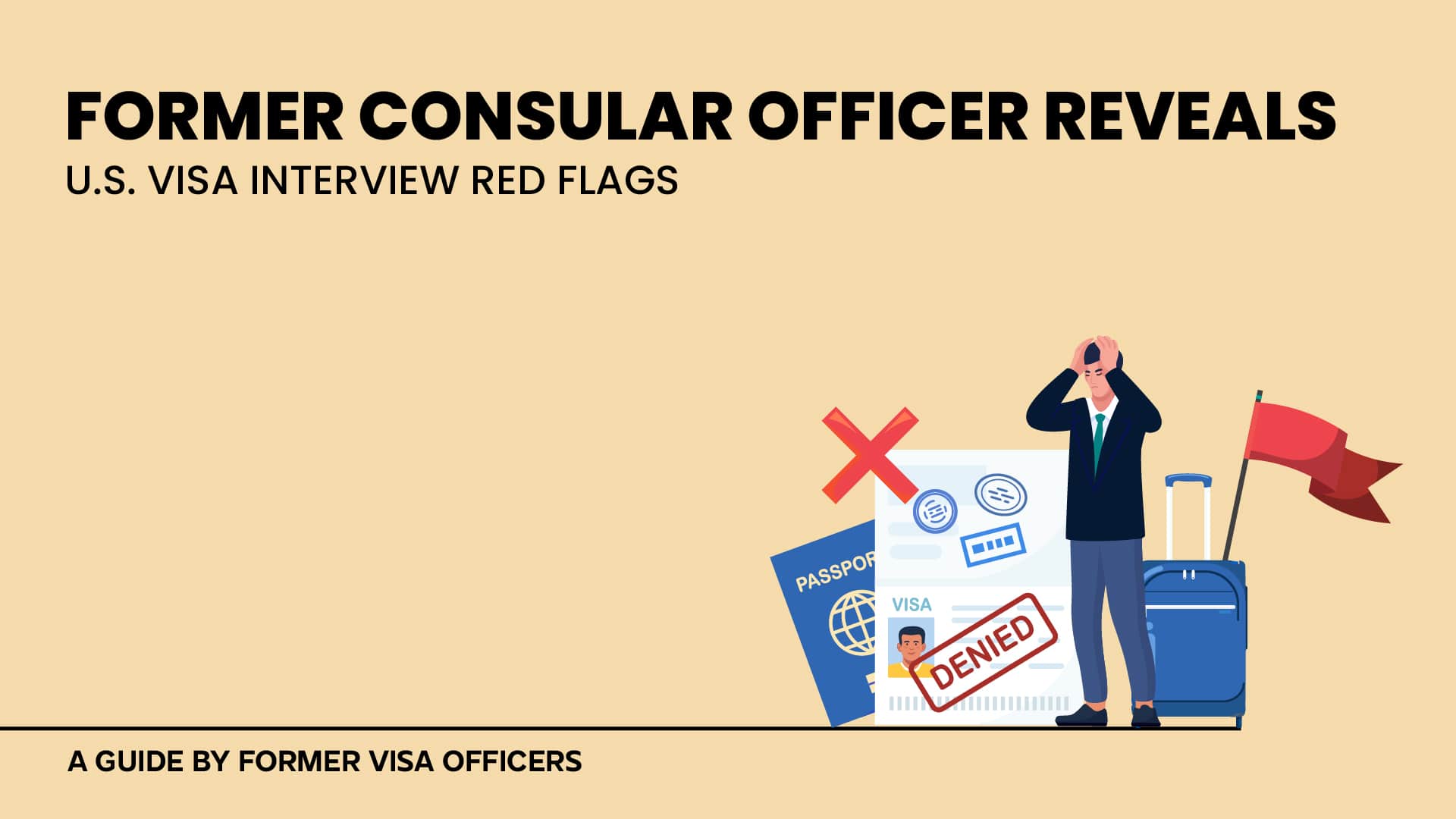Beginning a journey to a foreign land can be an exciting prospect, but navigating the visa application process can be challenging. Understanding the b1/b2 visa rejection reasons for U.S. visa rejection is crucial to avoid common pitfalls. The United States visa policy is detailed and specific, and each application undergoes rigorous review, often including an interview with a consul. Visa refusal can leave applicants feeling disappointed and unsure of the next steps.
According to the latest statistics from the US Department of State, the overall U.S. visa rejection rate for all non-immigrant visas was 22.1% in fiscal year 2022. This means that for every 100 visa applications, 22 were denied. This statistic varies wildly by country and visa category.
Visa rejections can be a frustrating experience for applicants, and there are several common reasons why they occur.
Understanding Visa Rejections
Familiarizing yourself with the reasons for visa rejection and understanding the visa application process for the country you plan to visit are vital steps. It’s essential to take the visa application process seriously and prepare thoroughly for the interview. Once you have applied for your visa, UDETI’s former consular officers (USA visa consultants) can assist you with visa interview preparation, helping you to address common reasons for visa rejection.
Understanding B1/B2 Visas
B1/B2 visas are non-immigrant visas that allow foreign nationals to enter the United States temporarily for business (B-1), tourism (B-2), or a mix of both (B1/B2). B1 visas are for business purposes, such as attending conferences, negotiating contracts, or consulting with business partners. B2 visas are for tourism, such as visiting family and friends, sightseeing, or medical treatment.
To apply for a B1/B2 visa, you must complete the DS-160 non-immigrant visa application form and pay the application fee. You will also need to provide a valid passport, a photograph, and evidence of your purpose of travel. You may also be required to attend an interview at a U.S. embassy or consulate.
Both visas can be issued together, allowing travel for both business and tourism. The number of visits to the U.S. with a B-1/B-2 visa has no official limit, but it’s essential to adhere to the visa’s purpose and restrictions to avoid any issues with immigration authorities. If in doubt, consulting an immigration expert is advisable.
Section 214(b) Explained: Overcoming Visa Refusals
Section 214(b) is a part of the U.S. Immigration and Nationality Act that states every visa applicant is presumed to be an immigrant until they can prove to the satisfaction of the consular officer that they qualify for a nonimmigrant status. This means that to qualify for a visitor or student visa, an applicant must demonstrate that they meet the requirements of the Immigration and Nationality Act.
The most common reason for refusal under this section is the failure to prove a residence abroad that the applicant has no intention of abandoning. Applicants must show ties to their home country that would compel them to leave the U.S. at the end of their temporary stay. It’s important for applicants to demonstrate strong ties to their home country to overcome this presumption and qualify for a nonimmigrant visa.
If you’ve been denied a visa under Section 214(b), it’s not necessarily permanent. The consular officer will review your case again if you can provide additional convincing evidence of ties outside the United States. However, in some cases, an applicant may not qualify for a nonimmigrant visa, regardless of how many times they reapply, until their personal, professional, and financial circumstances change considerably. It’s important to understand that each case is unique, and the decision to grant a visa depends on individual circumstances.
Not sure how to prove strong ties to your home country?
Talk to one of our ex-visa officers and get personalised guidance before your next interview.
What Are The Reasons For Visa Rejection?
If you’ve faced visa rejection or want to prevent it, knowing the common reasons behind it is crucial. It’s essential to be meticulous when filling out your visa application form and answering interview questions.
Facing visa refusal can be disheartening, but awareness of the common reasons for U.S. visa rejection is crucial for a successful application. Here, we outline why a visa gets rejected, highlighting key aspects that applicants must consider.
1. Weak Ties to Your Home Country: Why It Matters
Applicants who lack significant ties in their home country, such as being unmarried, may be perceived as lacking a stable family foundation, raising concerns about their commitment to returning home. Individuals who have not worked for an extended period may be deemed financially unstable or lacking professional roots, increasing the risk of visa rejection.
Lack of immediate family ties, such as spouse, parents, or children, may signal a reduced sense of responsibility and attachment to the home country. A weak educational background can be a red flag, as it may suggest a lack of qualifications or skills that could anchor an applicant to their home country.
If you’re concerned about weak ties affecting your visa application:
- Consider strengthening it by highlighting your family, educational, and professional connections.
- You can also demonstrate your financial stability through savings or investments and mention any freelance work or personal projects you’ve pursued during any employment gap.
- Additionally, showcasing enduring connections like friendships, business relationships, or community involvement can underline your commitment to your home country.
2. Struggling to Explain Your Travel Plans? Here’s What to Do
If you’re unable to clearly explain the purpose of travel, duration, and itinerary of your planned trip, it might raise doubts about the legitimacy of your visit. Even if an applicant is qualified, they may not have been able to convincingly explain their travel plans or qualifications during the visa interview.
It’s essential to establish a clear connection between your qualifications and the purpose of your trip to avoid confusion for visa officers. Additionally, non-verbal cues like body language and confidence levels can influence how well your qualifications and travel plans are perceived.
It is crucial to provide credible responses, avoiding inconsistency or vagueness, to ensure that the information provided is perceived as truthful. You can reduce your chances of U.S. visa rejection by:
- Highlighting your full qualifications, including education, employment, and family achievements, to showcase a promising future in your home country.
- Make sure to clearly show how your qualifications directly relate to the activities you plan to engage in during your stay, emphasizing the legitimacy and necessity of your visit.
3. The Dangers of Being Underprepared for Your Interview
Applicants may not have prepared well enough for the visa interview, including being specific about their travel plans, ties, and finances. Visa officers are highly suspicious and look for discrepancies in your story. Be natural and honest, and provide complete information. Memorized or unnatural responses raise red flags. Do your research and be ready to discuss your travel plans and purpose confidently.
However, you can succeed in your interview by:
- Preparing thoughtful and honest responses to address these points proactively during the interview is helpful.
- Also, practice maintaining confident body language, eye contact, and expressing yourself clearly. Projecting confidence can have a positive impact on how your qualifications and travel plans are perceived.
4. Can You Afford Your Trip? Proving Financial Stability
Insufficient funds may weaken your visa application, so demonstrating financial stability is crucial to discourage concerns about overstaying. Not clearly showing that you have enough money for your planned journey can make the officials worry about whether you can cover your expenses during your stay.
It might make them doubt your financial planning if you’re not clear about how you’ll use the funds for your trip. To ease concerns about overstaying, it’s important to convincingly demonstrate your financial proof and ties to your home country.
In order to strengthen your visa application and avoid any kind of visa rejection:
- Highlight legal obligations like mortgages, loans, or ongoing financial responsibilities to paint a complete picture of your financial stability.
- Discuss ongoing financial commitments, such as property ownership, steady employment, or business ventures, emphasizing your attachment to your home country and the intention to return after the trip.
- Clearly express your reasons for returning promptly, such as familial obligations, work commitments, or ongoing educational pursuits.
- Discuss having sufficient funds for your trip and demonstrate financial stability back home.
5. DS-160 Mistakes That Can Get Your Visa Denied
Making mistakes on the DS-160 form can have serious implications for your visa application. The DS-160 form is crucial, as it provides vital information to the U.S. Department of State and consular officers responsible for assessing your eligibility for a nonimmigrant visa. It collects essential details about you, including personal information, contact information, and travel details. Errors or inaccuracies in this form can lead to visa rejection, emphasizing the importance of carefully and accurately completing the DS-160 to avoid any adverse outcomes.
Follow the immigration department’s documentation process and avoid submitting fake documents to prevent visa rejection and penalties.
There are certain things that you must keep in mind while dealing with visa application rules:
- Review the visa application rules provided by the visa office and the Ministry of External Affairs.
- Ensure all required documents are accurately completed and submitted in the specified format.
- Seek assistance from a professional or reliable source to understand and comply with the visa application rules.
- Double-check all documentation for accuracy and authenticity before submission.
- Refrain from submitting any false or misleading information, which can lead to severe consequences.
- Take the time to thoroughly review and verify all details to ensure the completeness and accuracy of your application.
6. Proving Your Intentions: How to Convince a Visa Officer
Visa officers may refuse a visa if they are not convinced that the applicant intends to use the visa appropriately and legally. Visa officers look for clear and credible reasons for the visit, such as a well-defined academic plan for students or a detailed itinerary for tourists. If the officer perceives inconsistencies, vagueness, or doubts about the applicant’s intentions during the interview or through the application documentation, they may refuse the visa based on a lack of convincing intent. Therefore, it’s crucial for applicants to effectively communicate their genuine intentions and provide supporting documentation to demonstrate the legitimacy of their plans.
To overcome the issue of lack of convincing intent and avoid visa rejection, especially in the case of B1/B2 visa interview refusal, individuals can take the following steps:
- Clearly articulate the specific purpose of the visit, whether it’s for tourism, business meetings, or family visits, and provide detailed information about the planned activities and itinerary.
- Demonstrate strong ties to the home country, such as stable employment, property ownership, family connections, or other commitments, to assure the visa officer of the intention to return after the visit.
- Communicate genuine and legitimate reasons for the visit, backed by supporting documentation, such as invitation letters, business correspondence, or travel itineraries, to substantiate the purpose of the trip.
- During the interview, provide clear, honest, and consistent responses to the officer’s questions, avoiding vague or contradictory statements that could raise doubts about the intent of the visit.
- Prepare and present comprehensive documentation, including financial records, travel bookings, and any relevant letters or contracts, to support the purpose and legitimacy of the visit.
7. Timing Is Everything: When to Apply for a Visa
Careful planning of the timing of your visa application is essential. Different types of visas have varying processing times, so it’s important to consider this when applying. It’s advisable to apply for a visa at least 45 days before your intended travel dates to allow for processing.
Consider following the below recommendations to avoid any visa rejection:
- Applying for a visa just a few days before your travel dates increases the likelihood of visa rejection.
- Submitting your application at least 30 days before your travel date is recommended.
- Seeking guidance from a visa counsellor can also help you understand the duration of the visa application process and determine the best time to apply.
The timing of the visa application is a significant consideration, particularly given the current visa processing delays. Some applicants may find themselves with visa appointments scheduled shortly before their intended travel dates. This timing aspect is crucial and can impact the visa application process, especially in the context of current processing delays.
Want to avoid these common mistakes in your next attempt?
Let our visa experts help you prepare with clarity and confidence.
How To Overcome A B1/B2 Visa Rejection?
Coping with disappointment and stress after a visa rejection is important. It’s advised to stay positive and have positive self-talk, as rejection is not personal, and better B1/B2 visa interview preparation can improve the chances in the future. Remember, visa officers assess each case individually and consider various factors beyond these points.
Read: Top B1/B2 Visa Interview Questions.
Have you faced Visa Rejections? To know more, watch out for a candid conversation with Yvette Bansal, an ex-visa officer. Don’t miss out on these invaluable insights!
Watch the Most Common Reasons for a B1/B2 Visa Refusal – Tips from a Former Visa Officer
Conclusion
Knowing common visa refusal reasons, you’ve taken a proactive step toward securing your travel dreams. By carefully preparing your documentation, showcasing strong ties to your home country, and adhering to DS-160 form rules, you’ve laid a solid foundation for success.
But the journey doesn’t end there. The visa interview, often perceived as the final hurdle, may leave you feeling like you’re on a roller coaster before the interview. Thorough preparation for your visa interview is crucial. UDETI VISA,(usa visa consultant) led by former visa officers, are unparalleled in providing expert guidance to help you present yourself effectively and convey your story confidently.
Frequently Asked Questions
How To Check Visa Rejection Reasons?
To determine the reasons for your visa rejection, start by carefully reviewing your submitted visa application for any errors, inconsistencies, or missing information. Additionally, check the rejection letter the embassy or consulate provided, as it typically outlines the specific grounds for denial. This is especially important as everyone who is refused (214b) gets the same generic letter, and the applicant does not know the reason for the refusal.
What Are The Reasons For B1/B2 Visa Rejection ?
Understanding the common reasons for a rejected visa is essential for anyone who has faced or wishes to avoid it. Lack of significant ties in your home country, such as being unmarried or not having worked for an extended period, and inability to clearly explain the purpose of travel, duration, and itinerary of your planned trip might raise doubts about the legitimacy of your visit. Mistakes on the DS-160 form can have serious implications for your visa application.
What Are The Main Reasons For Student Visa Rejection?
Student visa rejection may be due to incomplete or inaccurate application information, unclear articulation of academic plans, failure to demonstrate adequate financial support for education and living expenses, and insufficient English language proficiency. When reapplying for a visa, ensure your data is accurate and consistent, and avoid presenting fake documents. Clearly define your academic objectives and research your chosen university to articulate genuine reasons for your selection.
Confused about what can lead to an F-1 visa denial? Get clear answers in our comprehensive blog on F1-Visa Rejection, along with expert tips to maximize your chances of approval.
This blog post was written by Yvette Bansal, a former consular officer, and Amandeep Kaur, a lawyer and legal writer.
DISCLAIMER:
This blog does not endorse or advocate for any illegal activities. All content presented here is intended for educational purposes only. The viewpoints expressed do not constitute legal advice and are solely based on the writer’s opinions and experiences. Please use the information provided responsibly. Any advice given is of a general nature and should be applied to your specific circumstances with caution and consideration.
Copyright © 2025 UDETI LLC. All rights reserved.

